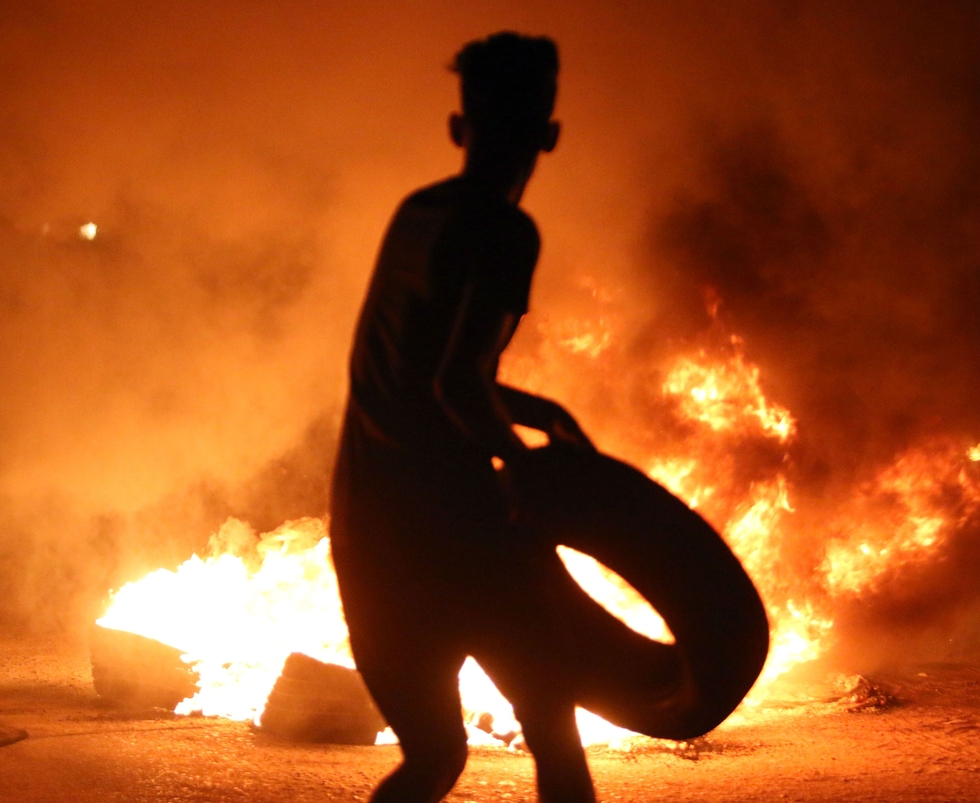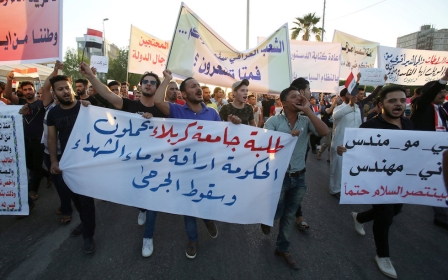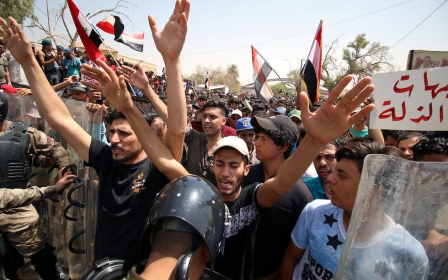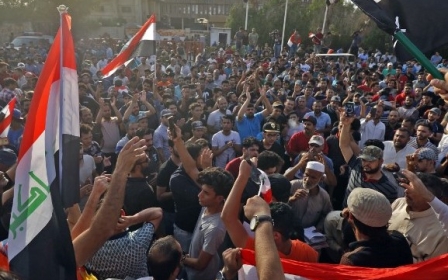Iraqi PM suspends electricity minister after weeks of protest

Iraqi Prime Minister Haider al-Abadi has suspended the minister of electricity, his office has said, following weeks of protests against corruption and chronic power outages.
A statement from Abadi's office on Sunday said the premier suspended Qassem al-Fahdawi, whose departure had been demanded by protesters, "because of the deterioration in the electricity sector".
The statement also said that Abadi had ordered an internal government investigation into Fahdawi's role in the deterioration of utility services, the Reuters news agency said.
Earlier, the AFP news agency reported that Fahdawi had been sacked from his position.
Iraq has been gripped by three weeks of protests during which demonstrators have railed against power shortages, unemployment, a lack of clean water and state mismanagement.
The protests, in which several people have died, first erupted in the oil-rich but neglected southern province of Basra, home to Iraq's only sea port, before spreading to neighbouring regions and north to Baghdad.
Power shortages have become chronic in Iraq, a country wracked by a series of conflicts that have devastated its infrastructure.
Since the US-led overthrow of Saddam Hussein in 2003, Iraq has allocated in state budgets a total of $40bn to rebuild the country's power network, according to official figures.
But households continue to get only a few hours of electricity a day, while some of the funds appear to have been embezzled.
'Phantom contracts'
A government official told AFP on Sunday that Abadi had also ordered investigations launched into fake contracts.
Since 2003, more than 5,000 "phantom contracts" have been signed in the public sector, according to Iraq's parliament.
During the same period, $228bn dollars have gone up in smoke due to shell companies.
A lawyer, Tareq al-Maamuri, recently lodged a complaint against Fahdawi and his ministry for failing to provide electricity.
He also demanded prosecutions over alleged "embezzlement of public funds".
Since Saddam's toppling in 2003, successive electricity ministers have been sacked over corruption or forced to quit in the face of angry protests.
One of them fled abroad after he was accused of embezzling $500m.
In 2010, one of Fahdawi's predecessors, Karim Wahid, resigned after a wave of protests across central and southern Iraq against draconian power rationing.
The shortages have forced Iraqis to buy electricity from private entrepreneurs who run power generators that can be seen on most street corners.
Electricity consumption has gone up in Iraq since the 2003 US-led invasion that toppled Saddam, as Iraqis make more use of household electronic equipment, including computers and mobile phones.
Iraqi officials say that a drop in oil revenues means less money in state coffers to rebuild the country's infrastructure. They also criticise Iraqis who, they say, are not paying their utility bills.
Election officials dismissed
The country has also been gripped by political tensions as its awaits the results of a partial recount of 12 May elections, while political factions jostle to cobble together a coalition.
On Saturday, Abadi sacked five local election officials on charges of corruption during elections, a spokesman for the Independent High Elections Commission (IHEC) said.
The move cames as Iraq conducts a manual recount of the ballots, which is likely to speed up the ratification of the final result and the formation of a new government.
Abadi had appointed a special committee to investigate claims of vote-rigging in several regions, and on Saturday he approved its recommendation to dismiss local election chiefs in Kirkuk, Anbar and Salahuddin, Judge Laith Jabr Hamza said in a statement.
Those in charge of overseas election offices in Turkey and Jordan were also dismissed.
"The decision to sack the officials was approved by the prime minister after they committed violations, manipulation and financial corruption," said Judge Laith Jabr.
Vote-rigging allegations centred on the city of Kirkuk, although there have been reports of irregularities in several provinces.
Opposition politicians have claimed that the tabulation system in electronic voting machines that were used for the first time during the election were not secure enough from tampering.
In response to the claims, the outgoing parliament in June ordered a nationwide manual recount of the votes.
The law also called for the IHEC's leadership to be replaced by a panel of judges.
This weekend's announcements from the Abadi office come after Iraq's top Shia cleric, Grand Ayatollah Ali al-Sistani, called on Friday for government action to answer protesters' demands and fight corruption.
New MEE newsletter: Jerusalem Dispatch
Sign up to get the latest insights and analysis on Israel-Palestine, alongside Turkey Unpacked and other MEE newsletters
Middle East Eye delivers independent and unrivalled coverage and analysis of the Middle East, North Africa and beyond. To learn more about republishing this content and the associated fees, please fill out this form. More about MEE can be found here.




